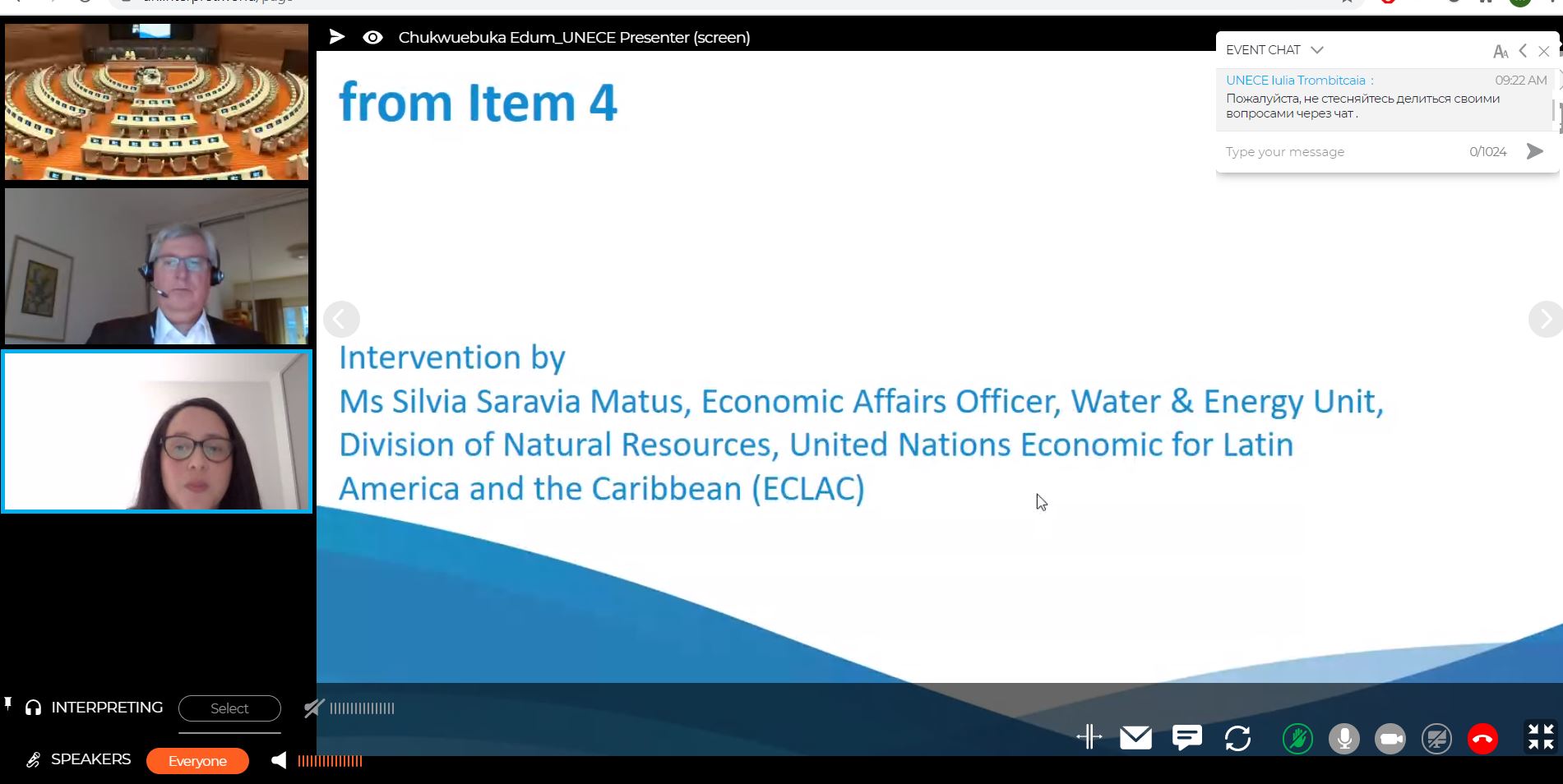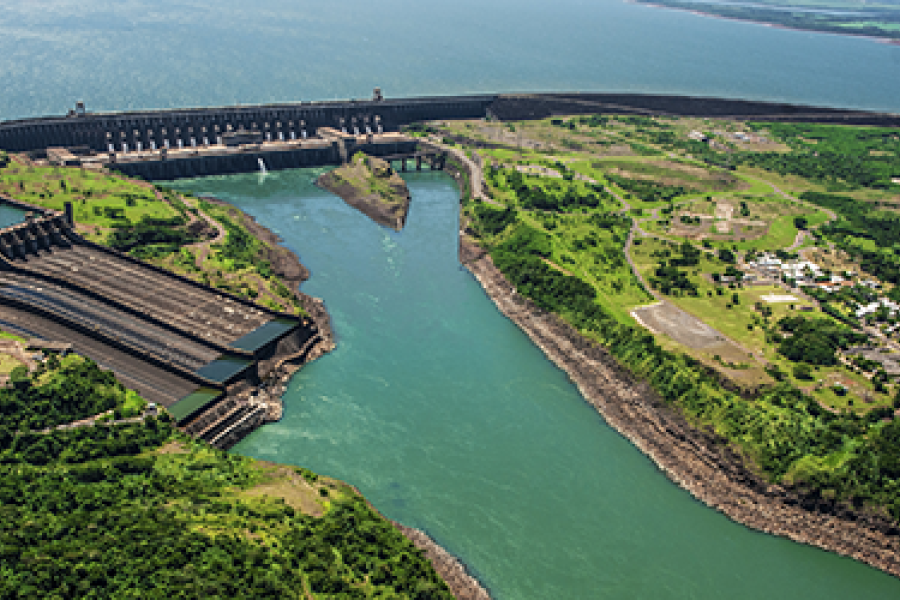Participation of ECLAC in the “6th meeting of the Task Force on the Water-Food-Energy Nexus”
Work area(s)
Teaser
ECLAC participated in the “Sixth Meeting of the Working Group on the Water-Food-Energy Nexus”, within the framework of the Water Convention, to share the advances in the adoption of the Nexus approach in policies and programs of the Latin America and the Caribbean region and to highlight the need for greater cross-border cooperation in the management of bodies of water, which continues to be a pending challenge in the region.
Event information

Date
22 Oct 2020, 06:00 - 08:00Event type
On October 22, 2020, “Sixth meeting of the Task Force on the Water-Food-Energy Nexus” was held in the Palais des Nations in Geneva and as virtual, under the Water Convention to analyze a series of Nexus-based initiatives in transboundary basins worldwide. This platform allows countries and basins to share their knowledge and experience of integrated management of natural resources in shared basins. The event had the participation of experts representing governmental authorities from different sectors, joint bodies, non-governmental as well as international organizations and other interested stakeholders, from the academia and the private sector.
Ms Silvia Saravia-Matus of the Water and Energy Unit of the Natural Resources Division at ECLAC participated in the session titled "From joint identification of issues to intersectoral solutions", who started mentioning the work ECLAC, thanks to german cooperation, is doing to support countries in their strategies to manage natural resources following the guidelines of the 2030 Sustainable Development agenda, being the Nexus an ideal approach since, like the 2030 Agenda, it integrates the trade-offs and synergies across sectors and goals. For exploring the more operational side to the adoption of the Nexus approach, ECLAC recently published a Methodological Guidelines for adoption and evaluation of nexus-related actions which its purpose is to assist LAC countries in developing more coherent, effective, efficient and relevant policies.
Saravia-Matus also talked about the main intersectoral problems facing LAC, which are affecting transboundary watersheds and shared watercourses, as 71% of surface water flows under these configurations and in the last 3 decades, there has been an increase in the water-related pollution, overexploitation and conflicts in LAC. Regarding the progress in the application of nexus solutions and investments in the region, she said that this is demonstrated in the development of basin plans, or multipurpose dam projects (among others), which require the participation of various sectors from the early stages in their design. Regarding the main take-aways of ECLAC's experience in facilitating linkages dialogues, she highlighted three specific areas for improvement in this regard: 1) updating and development of regulatory frameworks (that is, the Water Law, the Renewable Energy Law, the Irrigation); 2) institutional reforms to improve intersectoral coordination to optimize the use of financial resources while avoiding duplications or overlaps and 3) the development of information and monitoring systems to follow up on policies and increase both transparency and accountability. In conclusion, she highlighted that transboundary basin agreements are strongly related to the Nexus approach and ECLAC is committed to providing evidence from practical cases on the advantages of working intersectorally, particularly in the context of transboundary water.
Attachment(s)
Related project(s)
Organizing institution
Economic Commission for Europe (UN ECE)
- https://www.unece.org/info/ece-homepage.html
- Phone: +41 (0) 22 917 12 34 (switchboard)
